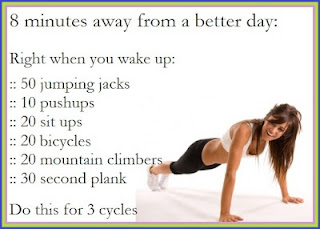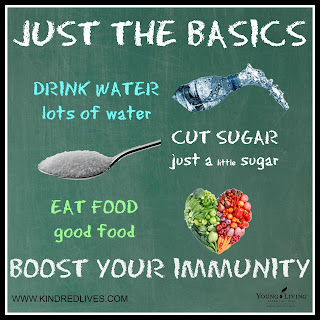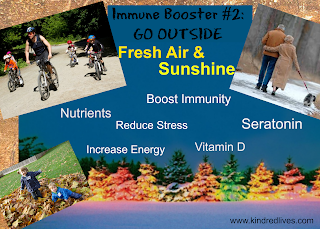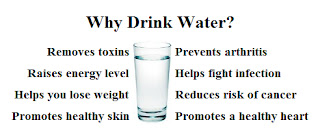Winter can be a difficult season on your physical and emotional health. The days are shorter, it is cold in most parts of the country, and colds and the flu are more prevalent.
During any season there are a few basics that can help to maintain optimal physical and mental health, such as eating healthful foods, drinking lots of water, exercising regularly, and getting enough sleep. However, you may be doing everything “right” and still need a little extra support to get you through those short winter days and long winter nights. This particular post is focusing on those things we should be doing to maintain our optimal health. Another post will focus on what I recommend for extra support.
 Stress (Lifestyle Action 1)
Stress (Lifestyle Action 1)
If you are alive, you have stress. It is integral and important to our lives. However, when we live with long-term stress, it is about the worst thing we can do to our bodies.
There is no substitute for the reliance on God for our strength, prioritization, and carrying our burdens but the reality is, our lifestyle affects our relationship with God, others, and our stress level. The other lifestyle actions we will be discussing are actually stress-reducers as well as immunity boosters. Knowing how to reduce stress is of utmost importance to your health and quality of life.
You can see from the picture, that stress places demands on much of our body - it is no wonder that it plays havoc with our immune system too.
Check out the
interactive graphic on Healthine.com to learn more.
Go Outside (Lifestyle Action 2)
Spending time outside reduces stress (among many other benefits) --> reduces the demands on your body -- > boosts our immune system and keeps us healthy ;)
Two Important Items are Outside which provide nutrition for our bodies thus boosting our immune system: Sunlight and Fresh Air
Sunlight:
With less sunlight and cooler temperatures in fall and winter, we all find the reality of time spent outdoors more challenging than in the late spring and summer months. But sunlight is very important to our bodies. Sunlight helps to reduce stress, increase energy, increase serotonin levels, and raise Vitamin D levels.
Vitamin D is incredibly important for us and the UVB rays from the sun are the best way for our bodies to receive Vitamin D. Many people are aware that it helps with the absorption of other minerals but its actual primary job is cell management. Due to its primary function (cell management), you can understand how Vitamin D affects all these areas:
· Muscles
· Bones
· Nerves
· Immune system
· Hormones
So, no matter the temperature, find time to take a walk and absorb some vitamin D this fall and winter!
Fresh Air:
The outside air is fresh, full of nutrients that our lungs and bodies just crave. It is “disease-free” because there is just so much of it meaning fewer particles to make you ill. Allowing that fresh-air to circulate through your body is going to strengthen your immune system because you are not adding as much “debris” which gives your body a break! A Google search as to “why is fresh air good for me” will give you tons more data ;)
The air inside is recycled and stale – in the fall and winter, we don’t even open the door as often to allow an exchange of air. It is even more important to change those air filters in our heating systems monthly in the winter as most of the air we breathe is our own recycled air.
5 Reasons to Spend Time Outdoors Even When It Is Cold Outside
 Exercise
Exercise
(Lifestyle Action 3)
Exercise requires a bit more planning and commitment in fall and winter with less sunlight, cooler weather, and busier schedules. Once you lose the momentum that you might have found in the active summer months, the habit to continue is hard to reestablish. Knowing why and having strategies to have a plan help make it happen!
Exercise is known to reduce stress and increase your immune system, being outside is also known to reduce stress and have many other amazing benefits on your body, so while you are outside, exercise and maximize your time! Any exercise is good - so if exercising indoors is the right place for you - go for it!
“Doctors have found that exercise can boost your immune system by providing a boost to the cells in your body that are assigned to attack bacteria. These cells appear to work more slowly in people who don't exercise than in those that do. As a result, if you exercise, your immune system is better equipped to handle bacteria that could cause you to become sick..” Fitday.com
Some strategies for finding “time” to exercise:

-
Start off each morning with a stretch and strength routine such as the idea to the left.
A five minute walk soon after waking is known to be a power immune and mood booster. Spend your time in the outdoors walking praying to our Creator and benefit from so much more!
Set a timer on your watch or phone: Just 10 minutes makes a huge difference, especially if you do it 4 times in a day. Start off your day with a walk, set your time to go off in 3-4 hours and take another one, reset your timer…you get the idea.
Take your work upright and/or work outside –
On a phone call? Walk around or better yet, outside to the parking lot, around the neighborhood, or if you are lucky enough, into nature and walk and talk.
Spending time in conversation? Go walk together and converse
On a business trip? Walk to dinner – my husband just returned from a trip where he asked his co-worker for permission to walk to dinner. His co-worker benefited as well. They walked a mile each way – talked, exercised, and both actually made wiser choices in their meals because of it too.
- Find a buddy – whether you are a person who finds working out alone or together to be of the best benefit for getting a good workout in, a buddy is helpful. You can meet at a destination and each do your own thing or do it together, but knowing you have someone to meet will keep a date and time on your calendar.
 Water and Food
Water and Food
(Lifestyle Action 4)
Food and water give us nutrients -> nutrients help our body’s functions -> we have a strengthened immune system.
The action item to drink plenty of water and eat healthy food is one of the most difficult actions for most people to follow through with.
Water is so simple yet so easy to forget. Your urine should be the very palest of yellow otherwise you are just not drinking enough. Water flushes the toxins out of your body!
Remind yourself to drink lots of water. Some tricks that work for different people: Fill a gallon jug in the morning and determine to finish it by bedtime; set a timer or alarm to remind you to get a glass of water; drink only water with meals; drink a glass of water in between your “usual” drinks.
Our bodies do not handle all “sugars” the same way. Here is a quick video to teach about how our bodies react to sugar specifically in regards to the compromised immune system: http://yhoo.it/1Mtt4en
The quality of food that you put in your body DOES matter. You want nutrient dense foods. Nutrient dense foods are as close to nature as possible. In the last 50 years, most of the food in our culture has lost it’s nutrient value.
Here is one example of why much of our food has lost its nutrient density. When processing wheat, 26 vitamins and minerals are taken out of the wheat in order to make the wheat shelf stable. This does not matter if it is organic, unbleached, or just plain white wheat. This process started during the industrial revolution in order to bring wheat into the cities and keep it from going rancid on the shelves. Americans were getting sick because of the nutrition that had been removed. Once the source of the lack of nutrition was found, the government required the wheat processors to replace 6 of the vitamins and minerals. These 6 vitamins and minerals are synthetic which don’t have the same qualities as the original and that still left 20 vitamins and minerals OUT of the wheat. Unless you buy bread made from fresh ground wheat or grind your own, there is no way of getting the vitamins and minerals in your diet.
As you can see, the nutrient density of food decreases through processing in order to meet the requirements of shelf stability. The easiest way to know your food is nutrient dense without growing or raising your own is to read food labels. If you can’t pronounce the names of products and/or there are more than 8 items listed on the label, you can assume the level of processing done is not the quality you are looking for.
Food Renegade is a great place to learn more about how to get nutrient dense foods into your life. I highly recommend their nutrition class as you will learn much about what your body needs as well as sources from which to find nutrient dense foods.
Bonus Thoughts on Lifestyle (Lifestyle Action 5)
1. Sleep allows our body to heal, repair, and rest. It has been said, “Instead of sleeping in, sleep earlier.” For most people, going to bed earlier means giving up television, phones, or computers. The blue light from our phones and computers actually feign us into the belief we are not tired. A person should expect to fall asleep within 20 minutes of the time you lie down. This will be harder if you have had the light of a computer or phone. I have started leaving all electronic equipment out of my bedroom as I was too tempted. I am literally getting an hour extra sleep a night just by leaving my phone and computer in the living room to be charged while I am in bed. I did have to go out and purchase a $5.00 alarm clock.
2. “Laughter is the best medicine.” I am not actually sure where the quote originally came from but it is so true – when we laugh, the number of T-cells increase and other markers of a healthy immune system increase too.
3. Whatever the weather, spend more time outdoors and take the opportunity to exercise while you are there.
Three cheers to your healthier fall and winter!












